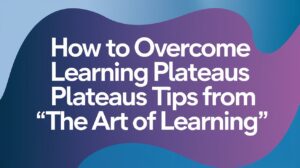Wise investing is both an art and a science, and it is often a lifetime pursuit. To anyone serious about amassing real and lasting wealth in the stock market, The Intelligent Investor by Benjamin Graham is considered, with excellent reason, to be the Bible of investment. First published in 1949, this classic has led a whole generation of investors into the path of financial success by advising them about value investing. Even decades later, Graham’s wisdom holds as good as ever. In this article, we review the book, go through some key lessons learned, give you a few of the most impactful lines, and then discuss how you can apply its teachings in your own financial journey.
Understanding the Value of ‘The Intelligent Investor’
The Intelligent Investor is not just a book, but a guidebook for those who want to know the key concepts behind investing. Graham-recognized as the “father of value investing”-wrote the book to help the average investor establish a logical, long-term strategy for investment. The strength of the book lies in its practical advice and the profundity of its content since it can easily be understood by a novice or an experienced investor.
Key Takeaways from the Book
1. The Role of Margin of Safety
- The central idea behind the book titled The Intelligent Investor is the concept of “margin of safety.” In the words of Graham, investment should be made in those securities for which prices are substantially below their intrinsic value. These methods will reduce the chances of loss and leave room for error, therefore acting as a cushion against market volatility.
- Example: If the intrinsic value of some stock is $100, Graham would advise buying it at $70 or less for a margin of safety.
2. The Difference Between Investment and Speculation
- The concept of investing versus speculation: for Graham, one invests when there is an in-depth analysis taken to guard oneself against loss, with sufficient return on investment. Speculation, on the other hand, shares a close resemblance with gambling: attending to high risk with a view toward quick profit.
- Best Line: “An investment operation is one which, upon thorough analysis, promises safety of principal and an adequate return. Operations not meeting these requirements are speculative.”
3. The Role of Mr. Market
- Graham now introduces the allegory of the “Mr. Market” to describe the stock market. Mr. Market is an intensely emotional character, sometimes quite irrational in buying your shares or selling his to you, depending on his mood, which changes wildly, with extreme fluctuations in price. Graham suggests that the investor should not let the mood swings of Mr. Market influence his thinking but, rather, it is better to be concerned with the intrinsic value of his investments.
- Less More: Look upon market fluctuations as an opportunity to buy undervalued or sell overvalued stock rather than as a realistic appraisal of value in your portfolio.
4. Emphasize Long-Term Investment
It is upon these bases that Graham rests his philosophy: long-term investment. He discourages trying to time the market or seeking quick profits. What he instead advocates is patience, thorough analysis, and a disciplined approach to investing.
Strategies: Invest in a portfolio of quality companies and hold for the long term. Let compounding work for you over time.
5. The Defensive Investor vs. The Enterprising Investor
Graham lumps all investors into one of two categories: the defensive or the enterprising investor. The defensive investor is looking at a minimization of risk and effort and prefers an uncomplicated, conservative approach. The enterprising investor is ready to expend more time and effort in pursuit of higher returns, with often more research and active management required.
Tip: Know what type of investor you are, and invest accordingly.
Putting Graham’s Lessons to Work in Your Life
Following the lessons of The Intelligent Investor will dramatically enhance your financial life. Here is how you get started:
1. Know Your Risk Tolerance
Decide whether you are a defensive or enterprising investor. Doing so will allow you to construct an investment program ideally suited to your risk tolerance and financial goals.
Focus on Intrinsic Value
Let’s consider the intrinsic value of every stock before investment. Intrinsic value means a glance at the earnings of the firm, dividends, and probable future growth, among other financial indicators. Invest in a stock only when it is quoted below its intrinsic value.
2. Don’t Be an Emotional Investor
Take the concept of Mr. Market and make the most out of it. Never take investment decisions from market hysteria or pessimism. Focus on the fundamentals of the company and stick to your long-term game.
3. Diversify Your Portfolio
Minimize risk: through diversification of your investments in various sectors and classes of assets. Again, this follows Graham’s principle to protect against loss but still provide adequate returns.
4. Practice Patience and Discipline
Wealth accumulation through investment takes time. Refrain from the urge or temptation of frequently looking into your portfolio, or react to temporary movements in the market. Have a little faith in your strategy and let your money grow with time.
The greatest investment advisor of the twentieth century, Benjamin Graham, taught and inspired people worldwide. Graham's philosophy of "value investing" -- which shields investors from substantial error and teaches them to develop long-term strategies -- has made The Intelligent Investor the stock market bible ever since its original publication in 1949.
Best Lines from ‘The Intelligent Investor’
Some lines have stood the test of time and even create more impact because of the timeless wisdom the book possesses.
- “The investor’s chief problem-and even his worst enemy-is likely to be himself.”
- “The essence of investment management is the management of risks, not the management of returns.”
- “In the short run, the market is a voting machine, but in the long run, it is a weighing machine.”
These quotes epitomize Graham’s belief in the importance of self-discipline, risk management, and long-term thinking for the successful investor.
The Relevance of ‘The Intelligent Investor’ Today
Surprisingly, The Intelligent Investor, even though it was written more than 70 years ago, still maintains a level of relevance to today’s financial landscape. The core value-investing practices remain the foundation which many very successful investors continue to use today, including Warren Buffett, who said this book is the best on investing ever written.
In this age of technology and social media, when the market does rapid and at times irrational movements, Graham’s advice is to stick to fundamentals and maintain a margin of safety. He teaches us that investing isn’t about quick wealth, but rather building slow and sure wealth through a series of informed decisions supplemented by disciplined practices.
Conclusion
The Intelligent Investor by Benjamin Graham is a must-have for the serious investor. Margin of safety, distinction between investment and speculation, and long-term perspective-essentially timeless in character-form the bedrock upon which the edifice of wealth creation through the stock market is built. The application of these lessons in your life will make you invest wiser, with reduced risk, thereby fulfilling your goals more effectively.
Whether an investor is new to the game or a seasoned veteran, the wisdom that can be taken from this book will indeed point them in the right direction toward more informed and successful investment decisions. Let me remind you, in the world of investments, patience, discipline, and intrinsic value are the keys to long-term success.






